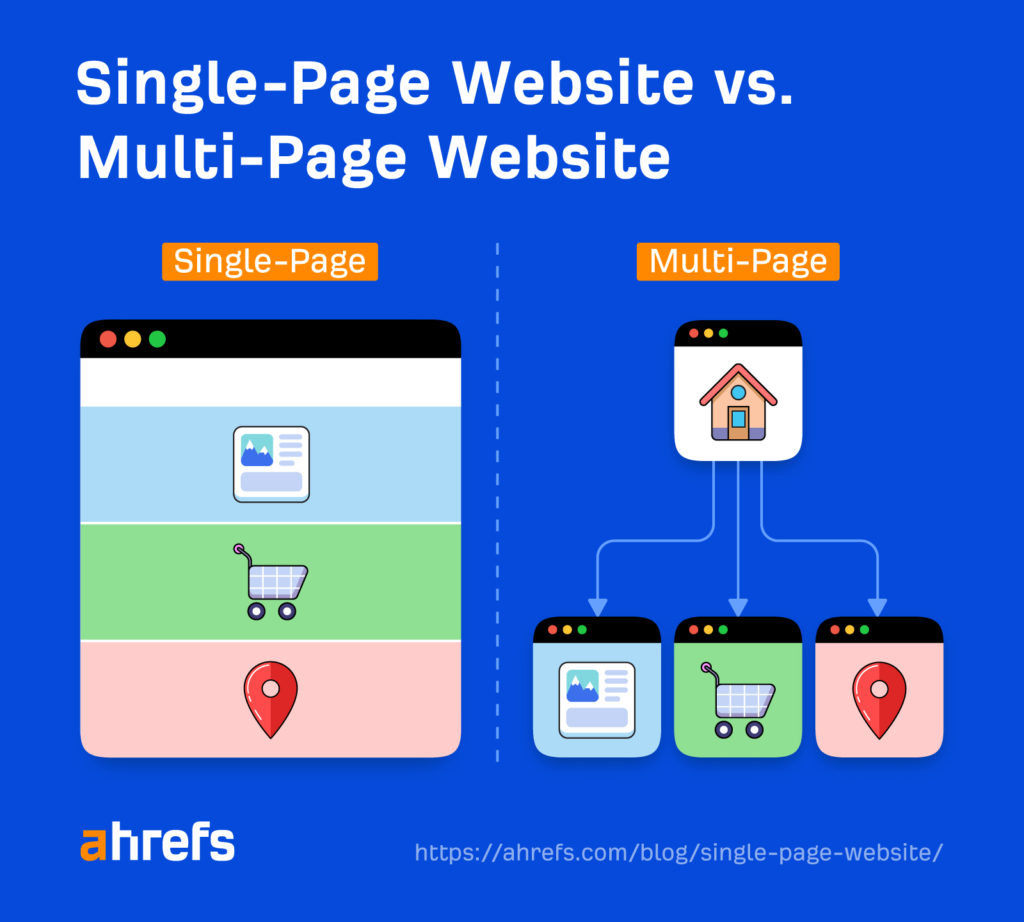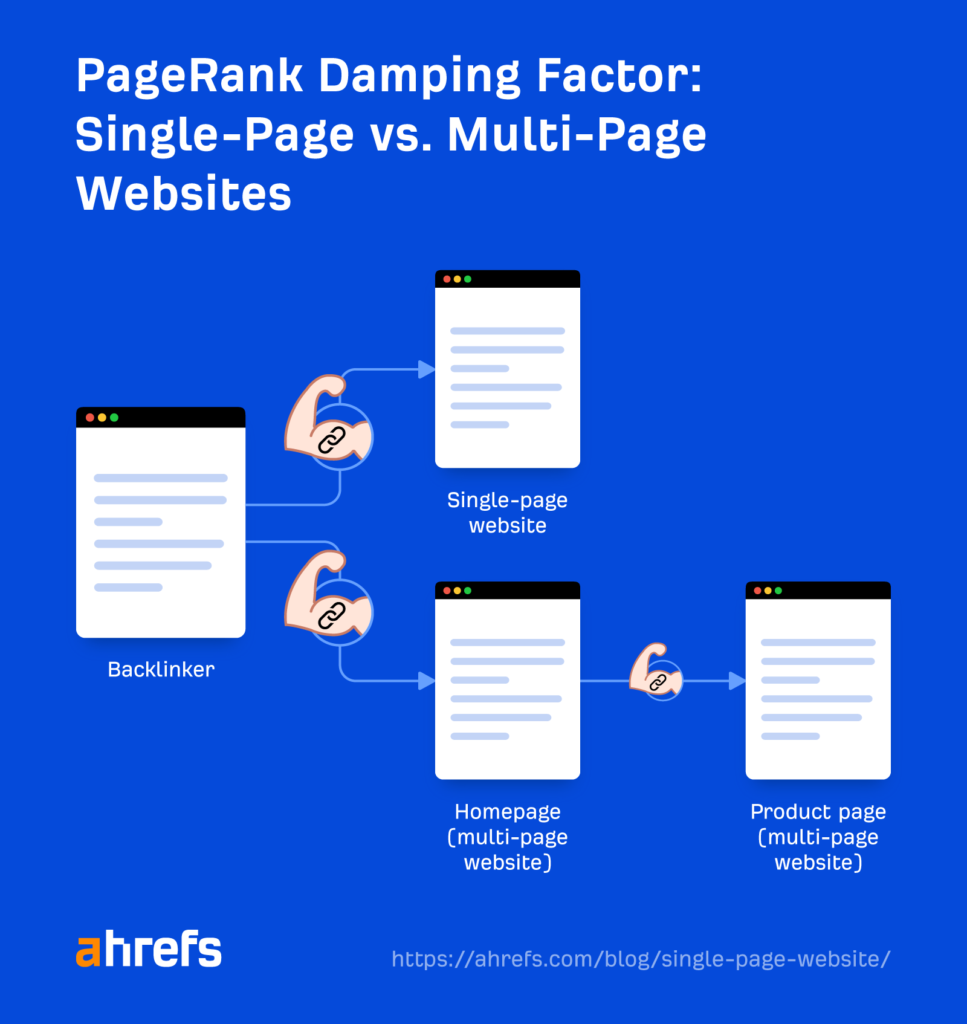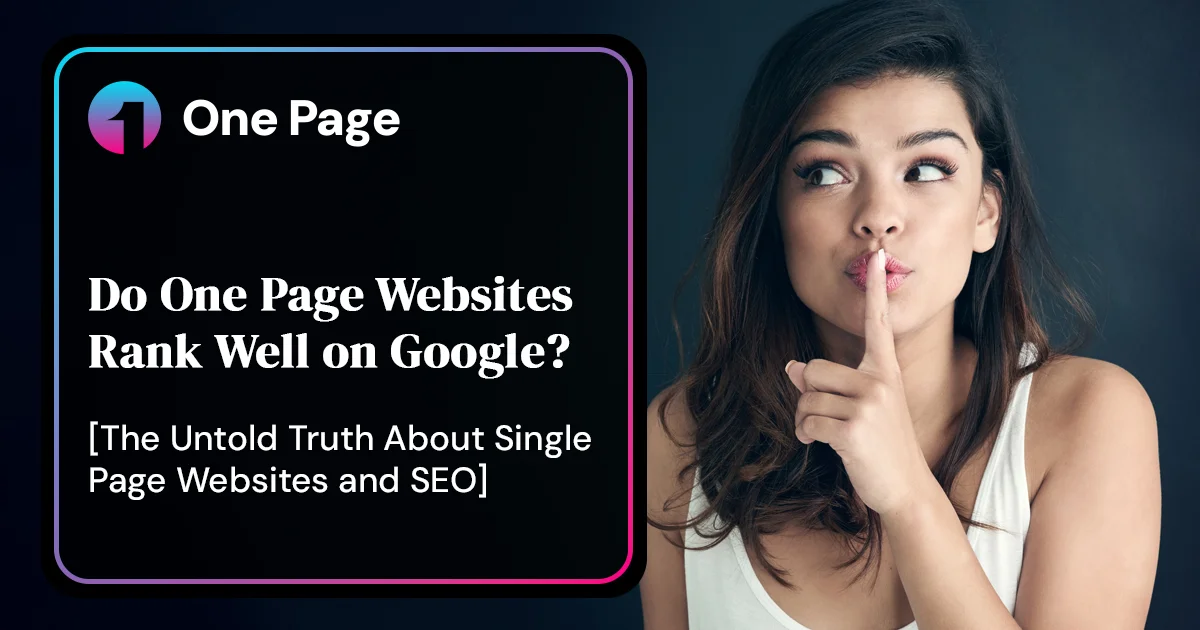Most websites aiming for organic search traffic follow a simple rule: more targeted pages = more revenue opportunities that rank. But what if you only have one page? Can a one page website SEO strategy compete in Google’s search results?
The short answer: It depends.
A one-page website can work if it’s executed correctly, but it comes with limitations—fewer ranking opportunities, weaker topical authority, and a higher risk of keyword dilution.
That said, in the right circumstances, a single-page site can perform well, especially for lead generation, personal brands, or highly targeted SEO strategies.
Let’s break down when a one-page website is a smart choice, when it’s a terrible idea for SEO, and how you can optimize one to get the best possible rankings.
What is a One Page Website?
A one-page website puts everything—services, about info, pricing, and contact details—on a single URL. Instead of clicking through multiple pages, users scroll or jump between sections using anchor links in the menu header.
One-page websites are good for:
- Landing pages
- Personal brands & portfolios
- Product launches & MVPs
- Local businesses that need a simple online presence
It cuts out complexity but also limits your ability to target multiple search queries effectively.
Are one page websites good for SEO?
In my experience, a one-page website is not good for SEO. If anyone is selling you on the idea that you can outrank competitors with a single-page site, they’re likely lying to you.
Sure, it might work in highly specific scenarios (which we’ll cover later), but for most businesses, a multi-page website is the better long-term SEO strategy.
Why are one page websites so bad for SEO?
Because SEO is about structure, depth, and authority—three things that are incredibly difficult to achieve on a single page. Let’s break down the biggest SEO problems that come with one-page websites and why they matter.

1. Limited Keyword Targeting = Less Search Traffic
A core part of SEO is keyword mapping—matching each keyword to a dedicated page that fully satisfies the search intent behind it.
- On a multi-page website, you can have separate pages optimized for:
- “Freelance copywriting services”
- “Copywriting portfolio”
- “Copywriting tips for beginners”
- “How to hire a copywriter”
- On a one-page website, you’re forced to cram all of these topics onto one URL, which weakens the relevance of the page for any single search query.
Let’s say a potential client searches for “copywriting portfolio.” Google scans your page and sees a mix of services, testimonials, and a brief portfolio section buried in the middle. Meanwhile, a competitor has an entire standalone page dedicated to their portfolio. Guess who ranks higher?
Always remember: Google prioritizes pages that directly match search intent.
Even with the best one-page website strategy, its nearly impossible to compete for a variety of keywords, which limits your organic traffic and potential customers.
2. Weaker Topical Authority = Lower Rankings Over Time
Google doesn’t just look at individual pages when it tries to serve relevant results in a search query. Instead, it looks at your entire website’s relevance to a topic.
This is where topical authority comes in.
- A multi-page website allows you to build a network of related content, reinforcing your authority in Google’s eyes.
- A one-page website has only one chance to prove itself—and it’s competing against entire websites with dozens or hundreds of pages on the same subject.
Take SEO agencies, for example.
A well-optimized agency site might have:
- A homepage explaining their core services
- Separate pages for SEO strategy, technical SEO, link building, and content marketing
- A blog filled with detailed SEO case studies and industry insights
Meanwhile, a one-page SEO agency site? It has one long, scrolling page trying to squeeze in all of the above. Google sees less depth, less authority, and less relevance—so it ranks it lower.
Google wants expert-driven, in-depth content. A single-page website lacks the depth needed to build true topical authority, which makes ranking against competitors even harder.
3. Poor User Experience (UX) = Higher Bounce Rates & Lower Rankings
User experience directly impacts SEO. If people visit your site, struggle to find what they need, and bounce back to Google, your rankings will drop.
One-page websites often suffer from:
- Long scrolling fatigue – Users have to scroll endlessly to find what they need, which leads to frustration and higher bounce rates.
- No clear content hierarchy – Multi-page websites can organize content into digestible sections. A one-page site tries to cram everything into one continuous stream.
- Harder navigation – Without a menu linking to different pages, users rely on anchor links (if they exist) or manually scrolling to hunt down information.
Let’s say you run a digital marketing agency. A potential client visits your site looking for your SEO services.
On a multi-page site, they can click directly on “SEO Services” in the menu and get all the details.
On a one-page site, they have to scroll past your About section, Testimonials, PPC Services, Social Media Marketing—all before finally landing on a short paragraph about SEO services.
Google tracks user behavior signals like time on page, bounce rate, and engagement. If users struggle to navigate a one-page website, they leave faster—and Google sees that as a ranking red flag.
4. Fewer Backlink Opportunities = Weaker Off-Page SEO
Backlinks are one of the strongest ranking factors in Google’s algorithm. Websites with high-quality backlinks from relevant sources tend to rank higher.
- A multi-page website has multiple opportunities to attract backlinks—guides, case studies, blog posts, service pages, etc.
- A one page website can only get backlinks to one URL—which limits its potential link equity.

For example, imagine you run a fitness coaching business.
If you have a multi-page site, you could earn backlinks to:
- A case study about a client’s transformation
- A blog post about “Best Workouts for Busy Professionals”
- A service page explaining your one-on-one coaching
Each of these pages can attract different types of backlinks, helping your overall domain authority grow.
With one page website SEO, you only have one shot: the homepage. And let’s be honest—who’s linking to your homepage?
A strong link-building strategy helps boost rankings across multiple pages. With a one-page website, your backlink strategy is extremely limited, making it harder to compete for rankings.
The Bottom Line? One-Page Websites = NOT Good for SEO
If SEO is a priority, a one-page website is a bad idea. You’re limiting your:
- Keyword targeting potential
- Ability to build topical authority
- User experience (especially for content-heavy businesses)
- Link-building opportunities
So why do some people still recommend one-page websites?
Because they’re straightforward and built for conversion. I’m also seeing a rising trend among LinkedIn pros who want a frictionless funnel to turn profile views into leads fast.
For some businesses—freelancers, bootstrappers, and personal brands—a one-page website can work in the short term. But if you actually want to rank competitively, generate organic traffic, and scale your SEO efforts… a multi-page website is the way to go.

